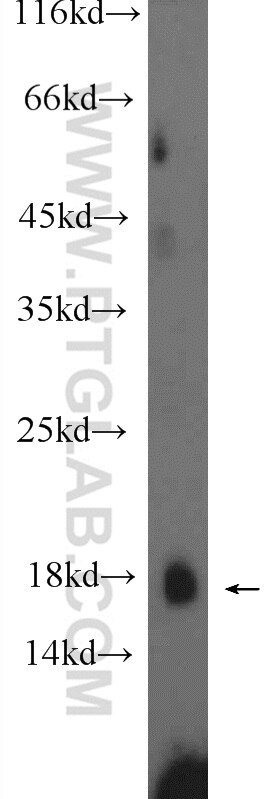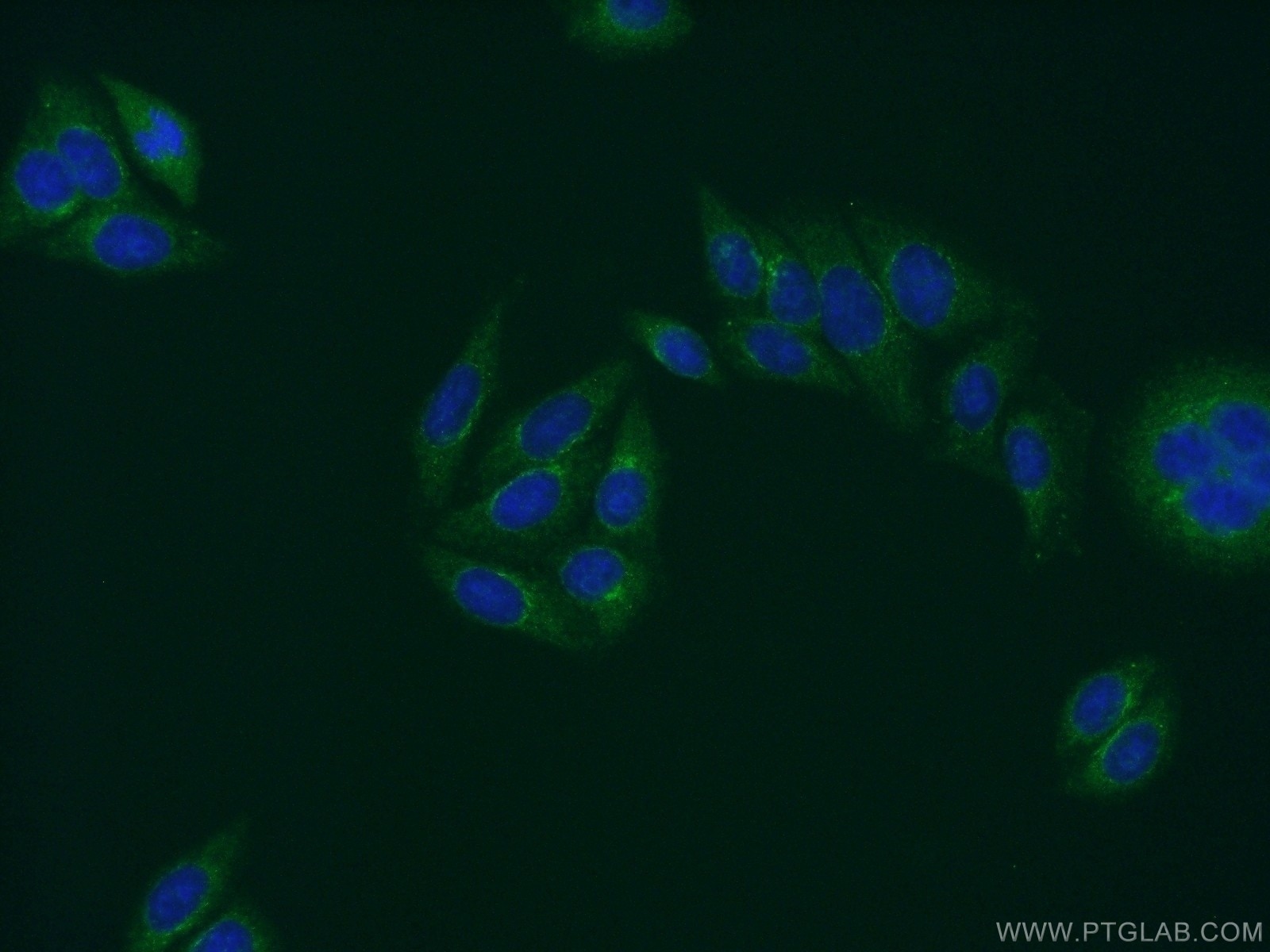PRH1 Polyclonal antibody
PRH1 Polyclonal Antibody for IF, WB,ELISA
Host / Isotype
Rabbit / IgG
Reactivity
human
Applications
WB, IF,ELISA
Conjugate
Unconjugated
Cat no : 21460-1-AP
Synonyms
Validation Data Gallery
Tested Applications
| Positive WB detected in | HepG2 cells |
| Positive IF detected in | HepG2 cells |
Recommended dilution
| Application | Dilution |
|---|---|
| Western Blot (WB) | WB : 1:200-1:1000 |
| Immunofluorescence (IF) | IF : 1:20-1:200 |
| It is recommended that this reagent should be titrated in each testing system to obtain optimal results. | |
| Sample-dependent, Check data in validation data gallery. | |
Product Information
The immunogen of 21460-1-AP is PRH1 Fusion Protein expressed in E. coli.
| Tested Reactivity | human |
| Host / Isotype | Rabbit / IgG |
| Class | Polyclonal |
| Type | Antibody |
| Immunogen | PRH1 fusion protein Ag14833 |
| Full Name | proline-rich protein HaeIII subfamily 1 |
| Calculated Molecular Weight | 17 kDa |
| Observed Molecular Weight | 17 kDa |
| GenBank Accession Number | BC064553 |
| Gene Symbol | PRH1 |
| Gene ID (NCBI) | 5554 |
| RRID | AB_2878862 |
| Conjugate | Unconjugated |
| Form | Liquid |
| Purification Method | Antigen affinity purification |
| Storage Buffer | PBS with 0.02% sodium azide and 50% glycerol pH 7.3. |
| Storage Conditions | Store at -20°C. Stable for one year after shipment. Aliquoting is unnecessary for -20oC storage. 20ul sizes contain 0.1% BSA. |
Background Information
PRH1, also known as Salivary acidic proline-rich phosphoprotein 1/2, is a 166 amino acid secreted protein whose molecular weight is 17 kDa. It functions as a highly potent inhibitor of calcium phosphate crystal growth. Similar to other PRPs, PRH1 provides a protective and reparative environment for dental enamel, which is important for teeth integrity. This antibody specifically recognises the 17 kDa protein.
Protocols
| Product Specific Protocols | |
|---|---|
| WB protocol for PRH1 antibody 21460-1-AP | Download protocol |
| IF protocol for PRH1 antibody 21460-1-AP | Download protocol |
| Standard Protocols | |
|---|---|
| Click here to view our Standard Protocols |



